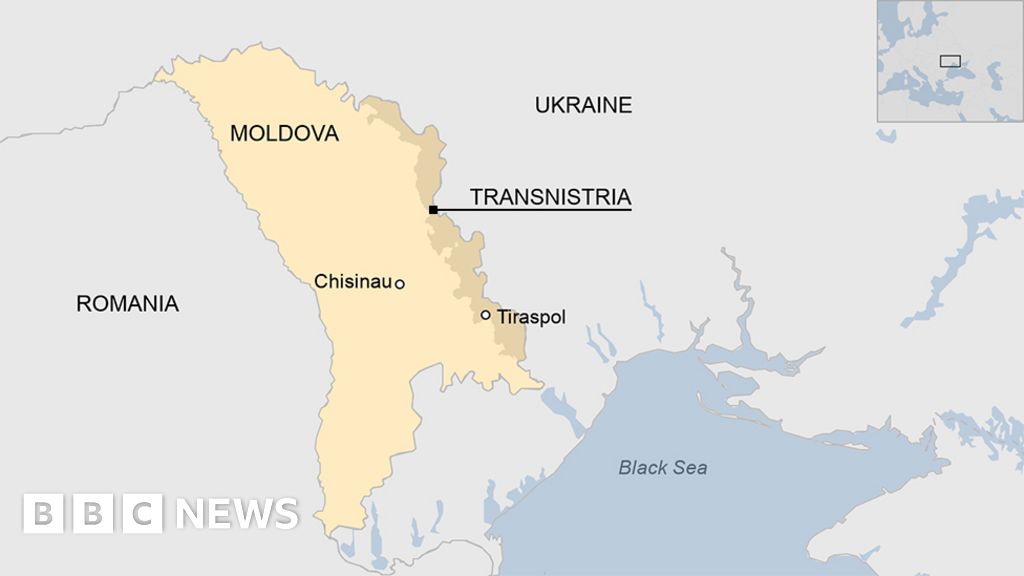The continuing presence of Russian troops has been a stumbling block in peace talks and the West is concerned about the large Soviet-era arsenal in Cobasna, and the safety of munitions stored there.
Russia has two military contingents in the territory, a peacekeeping contingent, and a group of troops which is the remnant of the former Soviet 14th Army.
Moldova has repeatedly called for withdrawal of the Russian troops and removal of the arms from Cobasna.
A pull-out began in 2001 but was halted when Transnistria blocked the dispatch of weapons. Subsequent agreements to resume failed to reach fruition.
Long-running talks supervised by the OSCE, Russia and Ukraine have yet to yield a political solution. In 2004 a Russian-brokered plan, which would have made the presence of Russian troops permanent, sparked mass protests in Moldova and was shelved.
There are disputes over language issues. Though dominated by Russian-speakers, around 40% of the population in Transnistria speak Moldovan, which is virtually identical to Romanian, as a first language.
Transnistria contains most of Moldova’s industrial infrastructure, but its economic potential is limited by its international isolation.
It has its own currency, constitution, parliament, flag and anthem. One of the last bastions of Soviet-style rhetoric, the territory has nonetheless privatised some of its industrial enterprises.
Russia shores up the region with financial assistance. It has a reputation for corruption, organised crime and smuggling, and has denied accusations of illegal arms sales and of money laundering.
Source link : https://www.bbc.com/news/world-europe-18284837
Author :
Publish date : 2024-10-14 15:22:00
Copyright for syndicated content belongs to the linked Source.
